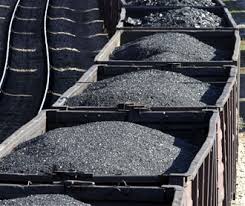Whether Australian negotiators wore T-shirts or otherwise behaved poorly during the wee morning hours of an informal negotiating session, as some NGOs have complained, is not really the issue.
The serious issue lies elsewhere; it’s in the marching orders from Canberra: “Australia obstructs the process at every turn”, sighs one sleepless negotiator.
Our government has apparently decided that Australia will not increase finance commitments for climate change action in developing countries. At the Warsaw climate change conference, Australia is making clear that it will not even discuss the issue, and is saying “no” on many other issues too.
A steady rise in climate finance was at the core of the 2009 Copenhagen deal that saw developing countries take on pledges to limit their emissions. For poorer countries, getting finance for at least some of the cost imposed on them is a fundamental prerequisite to play ball. They point out that they aren’t rich and haven’t caused the problem, but are expected to help solve it and will also suffering the consequences.
Reneging on that commitment to some looks awfully like Australia does not actually want to see action to cut emissions in developing countries, or perhaps anywhere. Add to that the news that the new government will not consider a target stronger target than 5 per cent, and you have a very poor perception of Australia’s position. And most at the conference are astonished that the new government would go so far as to throw out the carbon pricing scheme.
What many will suspect is that our government wants to shield the coal industry from falling global coal demand. That fall would be inevitable if the world takes strong action on climate change. And coal is plainly in view, with an international coal conference held just across the river from the climate talks.
And Australia has no minister at the talks to dispel such suspicions. Australia has always been seen to punch above its weight at the climate talks, now it is effectively missing at the high level talks. Not coming to the party sends a poor signal to the other guests.
Contrast that with China. China’s climate change minister, Xie Zhenhua, has been at the conference for days. He is seen every day at events where a succession of central and regional government officials present their plans and achievements: emissions trading in Shanghai, Beijing, three other cities and two large provinces; closing down coal-fired power stations and inefficient factories; unheard-of rates of growth in renewable power; electric cars taking off; buildings getting more energy efficient.
China is no green utopia, to be sure. Growth is still mostly of the brown variety. But local pollution and carbon emissions have grown so fast that the Chinese leadership sees no alternative but to change course. Stopping the growth in coal use is a real and near-term goal for China. The more benefit China sees in a greener kind of growth, the more the tide will turn.
Australian coal exporters are no longer expecting China to be a growing market. Instead, they pin their hopes on India and other developing countries where industrialisation is still in the rampant, polluting phase.
With that in mind, it is unsurprising that some in Warsaw are wondering about Australia’s real intentions in the climate talks.
Obstructing climate policy to help the coal industry would be the epitomy of short-term thinking. Australia is the developed country most vulnerable to climate change. We need to see effective global action to cut emissions, for our own good, and for the country’s long-term prosperity.
There is no role for coal in a world that mounts a serious response to the climate challenge, unless there is carbon capture and storage. The OECD makes it plain, just as the forthcoming IPCC report on emissions will: to keep the risks of climate change manageable, global net carbon dioxide emissions to the atmosphere need to go to zero in the second half of the century. And they need to start decreasing very soon. Until now they have kept increasing.
Building new long-lived coal-fired infrastructure – be it power stations in India or Germany, or coal mines in Australia – is incompatible with addressing the climate change problem. These assets are built to last half a century or more. Strong climate change action will mean that they will have to be closed down well before the end of their economic lifetimes. Carbon capture and storage could accommodate some continued coal use, but costs of this technology remain high and progress slow.
On the bright side, renewable energy is becoming a cost-competitive zero-carbon option. And Australia is not just the land of coal, but also the land of opportunity for renewables.
Tell delegates at the Warsaw conference about Australia’s opportunities in solar, also wind and perhaps geothermal or wave energy, and you can see a look of envy in their faces. Mixed with incomprehension why Australia would want to be stuck in the fossil fuel age.
Frank Jotzo is Associate Professor at the Australian National University’s Crawford School of Public Policy and a Visiting Researcher at the Centre for European Economic Research (ZEW). He attended the Warsaw climate change conference as an observer.










